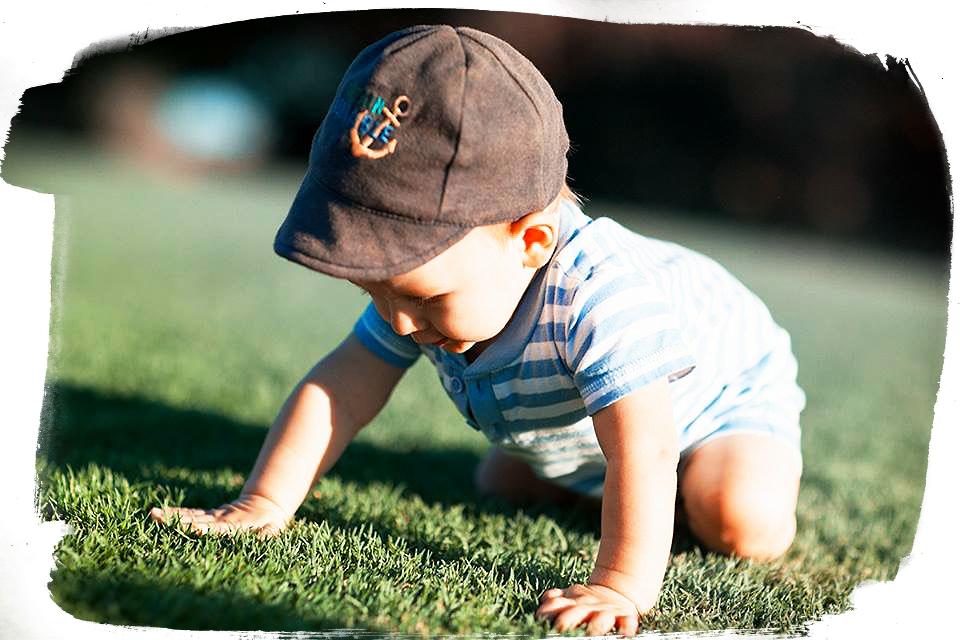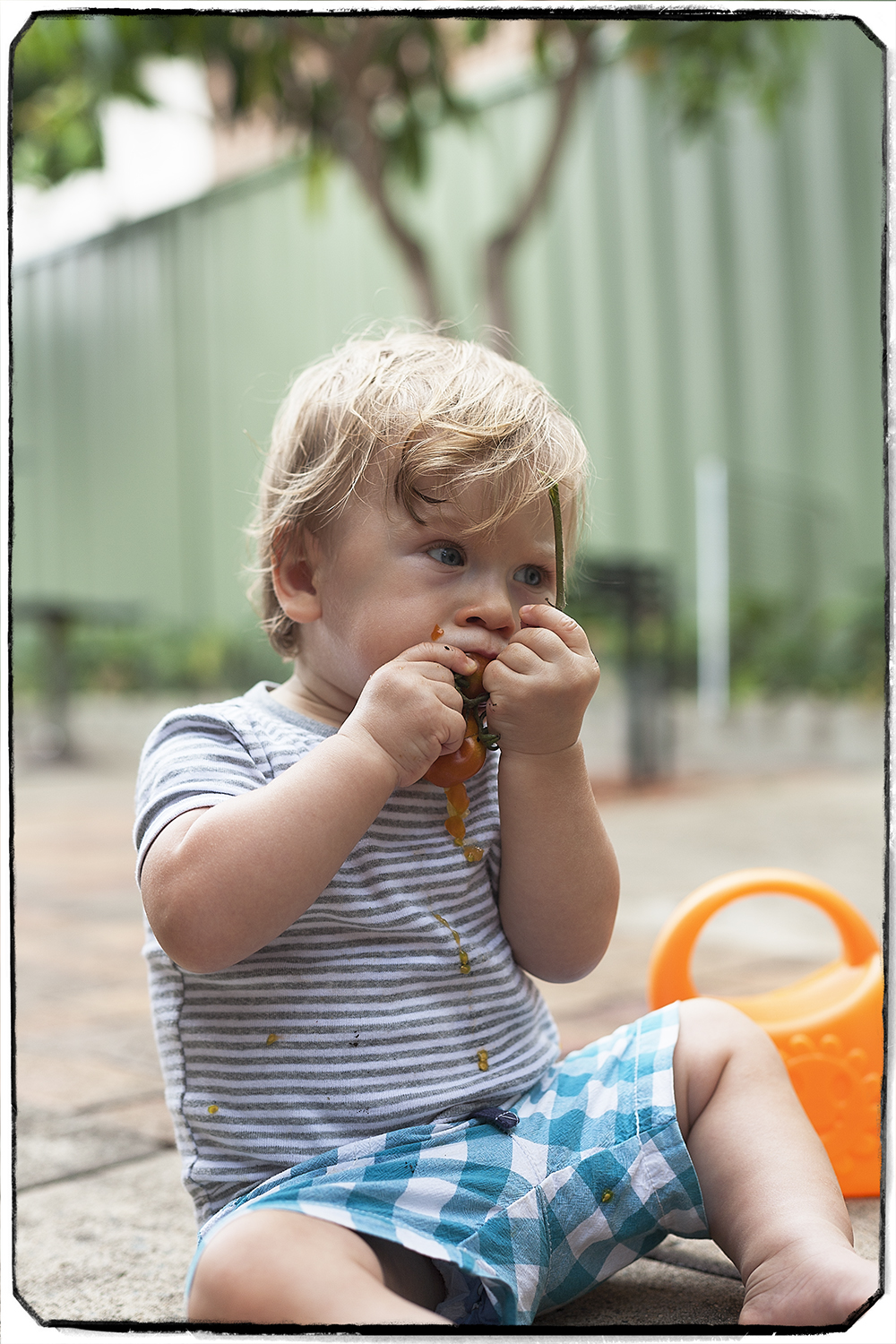How to do Tummy Time with your baby
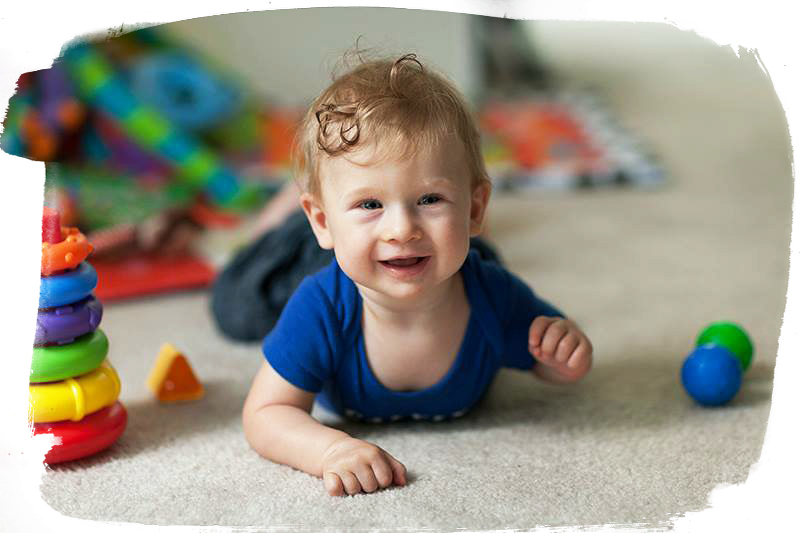
4 min read
Tummy time. Some babies don’t mind it. Some babies have big issues with it. Either way you will find out clear and loud what preference your baby has. As an OT (Occupational Therapist), I have taught the technique outlined in this post to many new moms with great results. Their little bundle of joy turning into tolerable tummy explorers. The strategy takes time and effort. But it is doable with good patience and practice. The most important thing: Don’t give up!
Important
The sooner you start placing your baby on their tummy the easier it will be for your baby. Please consult with your doctor first to ensure that there is no medical restrictions. Once your baby is all clear go for it.

Laying the foundations through tummy time
Josh started tummy time from day one. The first time was when I placed him on my chest while still in the hospital bed. There is something special about that 1st moment. Looking in your little one’s eyes. I loved looking at him and seeing him trying to move to look into my eyes. Even if it was for a split second. It was an amazing bonding experience that I will cherish forever.
Why do tummy time?
This is an essential activity for your baby. It helps to build coordination and strengthens your baby’s neck, shoulders, arms and trunk. These muscles help with motor skills such as: rolling over, crawling, pulling self up and sitting up.
Safety tips for tummy time:
- Make sure your baby is alert and awake when on tummy.
- Never leave your baby unattended when on tummy.
- ALWAYS place your baby on their BACK when putting them down to SLEEP.
When to start & duration of tummy time?
The sooner you start the less likely they will dislike the activity. It is a learned habit. Furthermore, they will quickly become stronger. I started laying Josh (my son) on my chest while he was on his tummy from the day he was born.
If you are experiencing difficulties, start them slowly. Try not to stress! Take a breath and try again later. Then aim to increase the repetition to create a new habit. It can be as short as few seconds at first. Watch them gain strength.
The AAP (American Academy of Pediatrics) recommends beginning play on tummy from the first day back from the hospital while your baby is awake. Start 2 to 3 times each day for a short period of time (3-5minutes) and increasing the amount as they become stronger and enjoy the activity. AAP recommends working up to 40 to 60 minutes a day. The total time can be split into short sessions throughout the day.
When are you done with tummy time? When your baby cries or rests their face on the surface, this is a sign they are done. Give them a break and come back to it later.
How to do tummy time?
There are many ways to practice tummy time. You can also grade them depending on their interest and strength. Try to incorporate tummy time into daily activities such as after changing a diaper or after bath time when you are drying your baby.
Tummy Time positions:
- Laying him down on your chest. This is the easiest way to get your newborn used to tummy time. While you are in a reclined position place your baby on your chest. You can then entertain him by talking or making funny sounds or faces.

- Lying sideways. If your newborn struggles with tolerating tummy time you can try lying them sideways. When you place them on their side, make sure to provide back support with your hand or a rolled up blanket. Also make sure that both of his arms are in front of him, with their hips and knees slightly bent.
- While burping your baby you can try laying him across your lap on his tummy.
- Use of a bolster. This will provide extra support. Roll up a thin towel to make a bolster and place it under your baby’s chest. Positioning: Position his arms over the bolster and hands stretching out in front. Baby’s chin should always be positioned in front of the bolster so that the airway is not blocked. Always supervise!
- Placing your baby on a flat and firm surface. While your baby is hanging out on the floor, entertain them. This will motivate them to stay on their tummies for longer. You can try some of these entertainment strategies:
- Go down to their level.
- Sing to them or make funny noises/sounds or faces.
- Place a small baby proof mirror in front of them so they can look at their reflection.
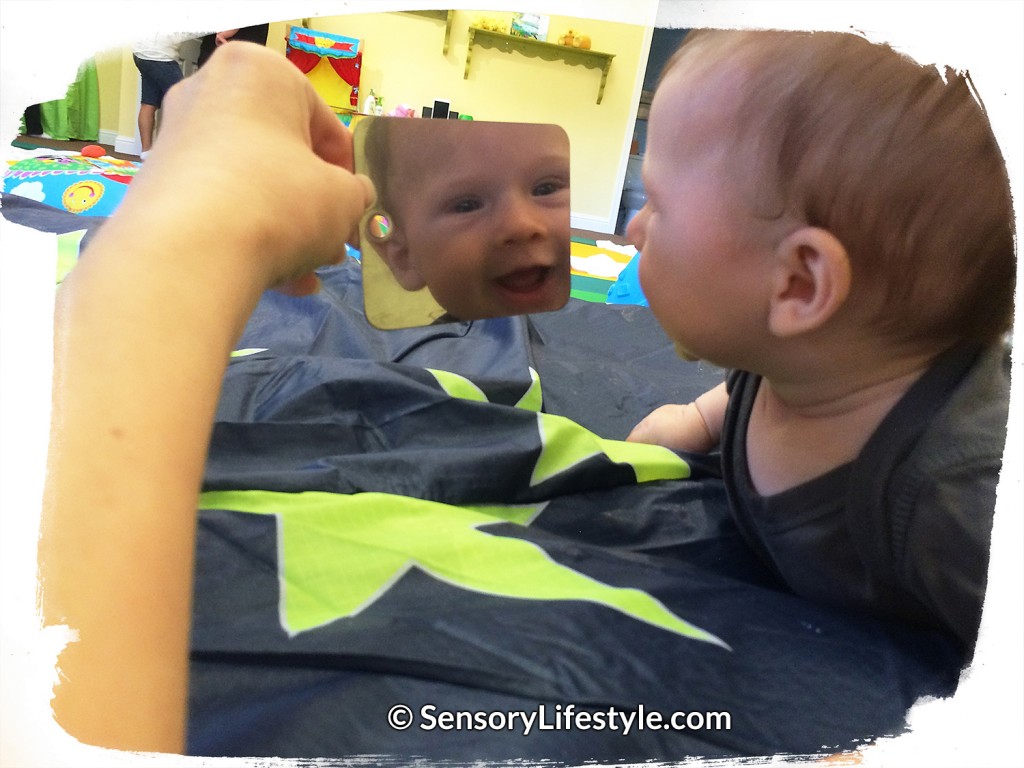
- Present them with different toys, rattles, puppets (one of Josh’s favorites).
- If you notice your baby gets bored, change the toy and show them something new.
- Use other siblings or your partner as a distraction.
- Tactile tummy time. Explore textures with them. Try different textured blankets your baby can explore by moving their hands and legs over it.
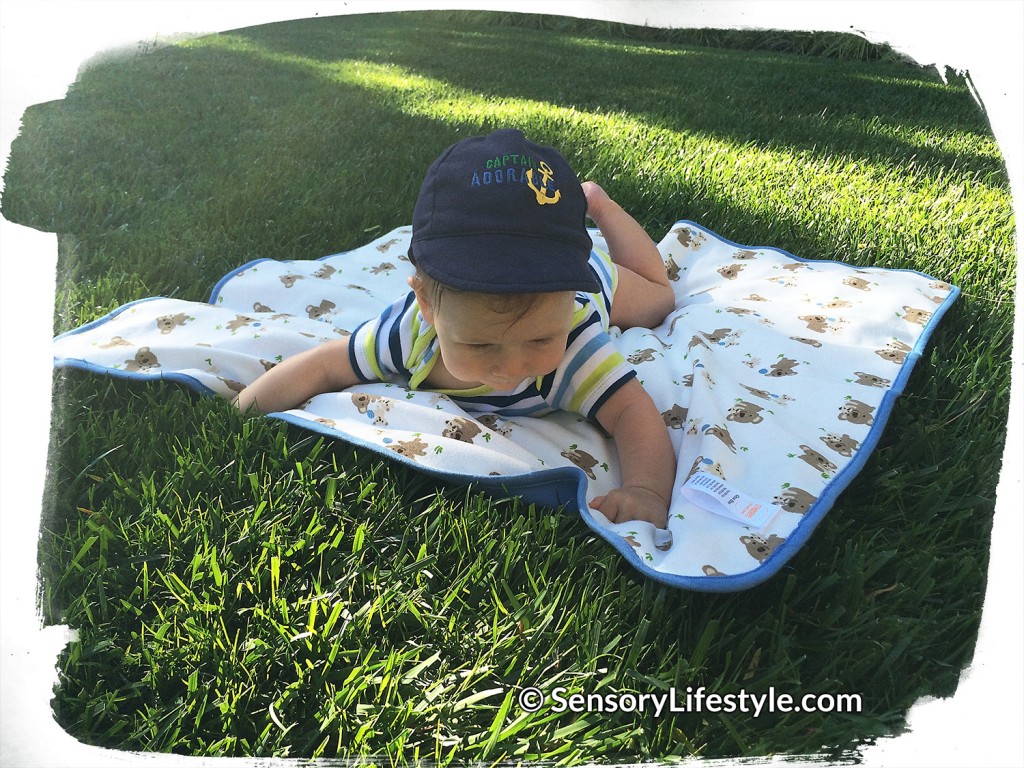
- Reaching skills while on tummy.
- Hold a toy or a favorable object in front to get his attention. This will encourage your baby to lift his head and reach.
- Place toys around your baby to encourage reaching in different directions.
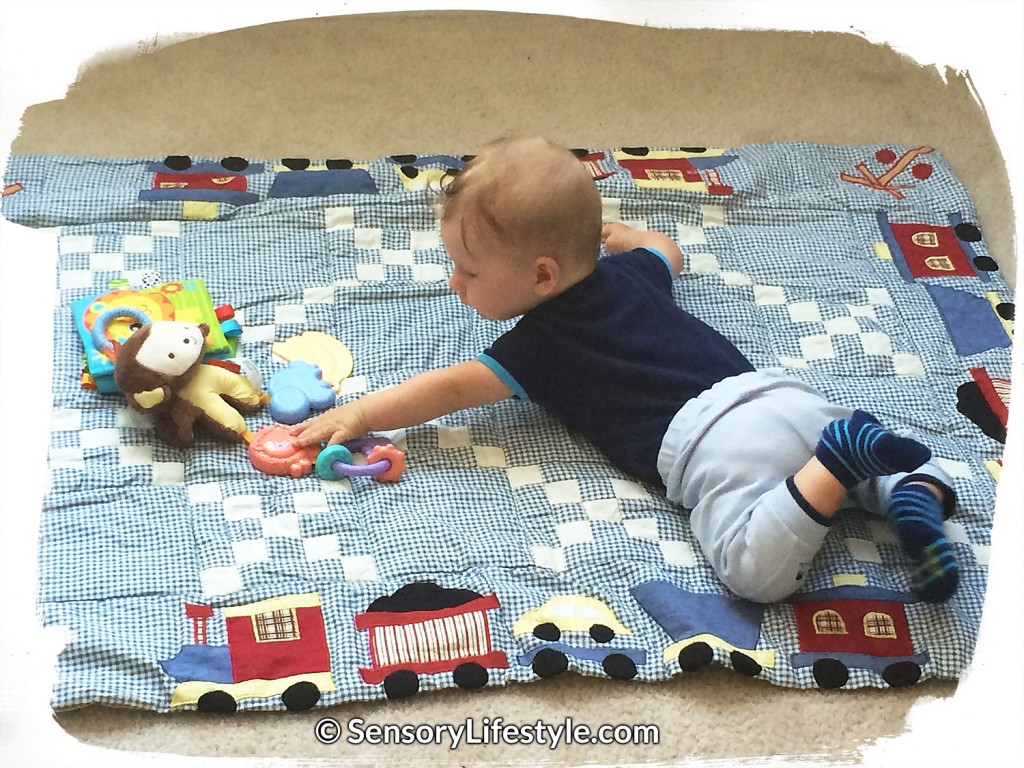
- Exercise ball & tummy time. Do this once their neck gets a bit stronger and they have a better control over their head. Place their tummy over the ball facing away from you. Hold your baby at the hips for stability and gently roll the ball back and forward.
Here is a video I am happy to share with you which illustrates some of the activities I mentioned above. This is through Pathways.org, Five essential tummy time moves.
So there you have it. I hope these tips make it easier for you to practice tummy time with your little bundle of joy. If you need more help or not sure how to do a tummy time activity outlined above, feel free to contact me or leave a comment below.
Have fun playing!
~ Urszula

